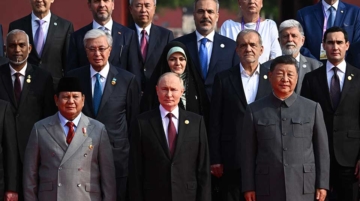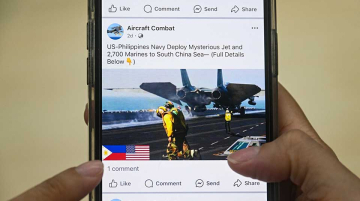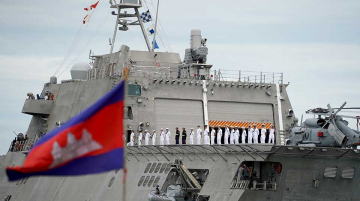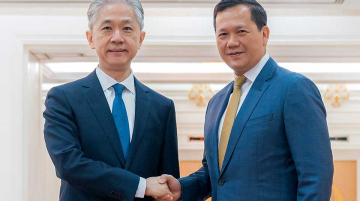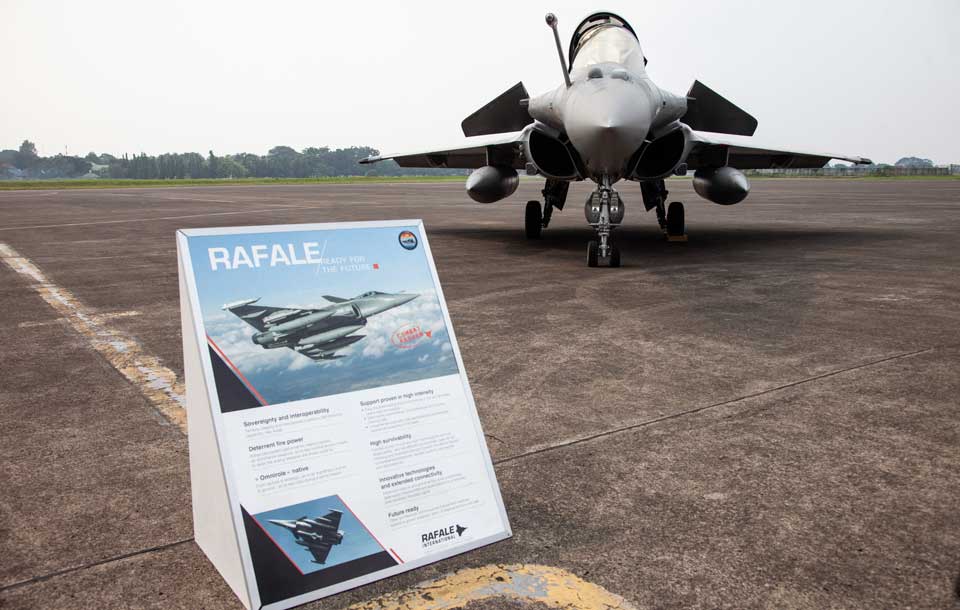
Indonesia’s $8.1 billion deal to purchase 42 Rafale fighter jets from France marks a significant step in the country’s military modernization. However, the agreement has also attracted attention in another arena: Indonesia’s information space, where narratives—not just policies—are shaping perceptions of national defense, trade, and foreign influence.
Shortly after the Rafale announcement, Indonesian digital space saw a wave of content disparaging the French jets while praising China’s J-10C as a more culturally compatible and technologically superior alternative.
According to Nava Nuraniyah of the Australian National University, along with Jennifer Williams and Julian Droogan of Macquarie University—who used non-intrusive digital ethnography (observing online communities without engaging) and thematic coding (sorting content to identify recurring patterns and themes)—this included misleading visuals, recycled video game footage, AI-generated images, and posts falsely portraying a Pakistani Muslim woman fighter pilot as flying a Chinese J-10.
These narratives coincided with a viral misinformation push in May that circulated controversial claims about a historical India-Pakistan air clash—including unverified reports that Chinese-made jets had downed Indian Rafales. While Indian outlets like The Economic Times reported such losses, other sources have questioned the accuracy of these accounts.
The researchers also found that some Indonesian media outlets repeated these stories, and hashtags like #HentikanRafaleDeal (Stop the Rafale Deal) began trending. Yet engagement appeared inconsistent with organic public sentiment, suggesting the content may have been amplified inorganically or coordinated.
French intelligence sources have reportedly attributed the surge to Chinese-linked defense lobbying in Jakarta. However, no direct evidence has been made public to date. Analysts and researchers have noted the sophistication of the campaigns but also stop short of identifying definitive sponsors. And that’s where the problem lies: in the absence of solid proof, it is risky to point fingers at a state actor like China.
The Chinese government has firmly denied the claims. A July 2025 statement by the Chinese Embassy in Jakarta, carried by the Global Times, dismissed the assertions as “groundless speculation” and accused critics of politicizing Indonesia’s sovereign defense choices.
Others have pointed out that influence networks tied to different countries—including Russia or other competing defense interests—could also be involved. Without concrete forensic evidence, any attribution, at least for now, remains speculative.
Was the J-10 Ever on the Table? Influence, Timing, and Strategy
At the same time, Indonesia’s fighter jet decision process complicates the picture. While the country ultimately chose Turkey’s KAAN platform over both the Rafale and the Chinese J-10, the anti-Rafale campaign emerged during a period when the J-10 was still being publicly discussed as a potential option. Some observers suggest the Indonesian government may have deliberately amplified this possibility—perhaps even encouraging speculation—as a way to gain leverage in price negotiations with France and Turkey.
A now-deleted post about Indonesian pilots being trained to fly the J-10 has been cited as supporting this theory.
If that’s the case, then the online messaging may have been more than noise. It could have been part of a coordinated effort—whether by interested parties abroad or by local actors.
Beyond Defense: Faith-Based Messaging and the China Image Campaign
Pro-China narratives have extended beyond the Rafale issue. Since U.S. President Donald Trump’s so-called “Liberation Day” tariff announcement in April, Indonesian media platforms have seen a growing stream of content portraying China as an ally to Muslim-majority countries—claiming, for instance, that China is the only country capable of bypassing the Israeli blockade of Gaza, and even suggesting that the tomb of the Muslim prophet Zulkifli may lie along the Great Wall.
These narratives are emotionally resonant and framed to appeal to religious identity and solidarity.
Again, attribution is murky. In its investigation into this post-tariff digital activity, Indonesian outlet Tempo emphasized that “there are no forensic traces, leaks, or definitive evidence” proving Chinese government involvement.
What is clear is that many of these narratives mirror past regional campaigns seen on Chinese and Russian platforms: highly emotive, targeted messaging that has been repackaged and localized to sway opinion in strategic markets.
The Real Contest: Securing Indonesia’s Public Sphere
But not all influence is necessarily state-directed.
Content creation today often occurs in gray zones: patriotic influencers, state-aligned media, troll farms, and even commercial actors can all play a role in shaping perceptions. That is why prematurely attributing all such campaigns to the Chinese state risks oversimplifying a complex, fragmented landscape.
The broader point is not whether China—or any one country—is solely responsible. Instead, it is that Indonesia’s public sphere is becoming a contested space where viral narratives, whether state-backed or not, can subtly shift the terms of debate.
In the context of national defense and foreign policy, these narratives matter—not because they directly influence decisions, but because they can shape how those decisions are understood and legitimized.
Indonesia faces a growing challenge: protecting its information environment in an age of viral disinformation and algorithm-driven influence. This doesn’t require censorship, but resilience—built through concrete steps like integrating media literacy into education, supporting independent fact-checkers, strengthening public-interest journalism, and ensuring greater transparency from digital platforms operating in the country.
While algorithms are powerful and platforms often operate beyond national oversight, Indonesia is not without influence. Promoting critical thinking, requiring evidence before accepting viral claims, and cultivating a culture of informed skepticism are all vital tools for maintaining the integrity of public debate.
Strategic narratives around defense, trade, and foreign policy are increasingly being shaped online—sometimes subtly, sometimes manipulatively. These conversations matter. They should be grounded in facts and local accountability, not in hashtags, AI-generated content, or emotion-driven misinformation. Safeguarding that space is not just a media priority—it is a national imperative.
This article was co-authored by Yeta Purnama, a researcher at the Center of Economic and Law Studies (CELIOS), and Muhammad Zulfikar Rakhmat, Director of the China-Indonesia Desk at CELIOS.



